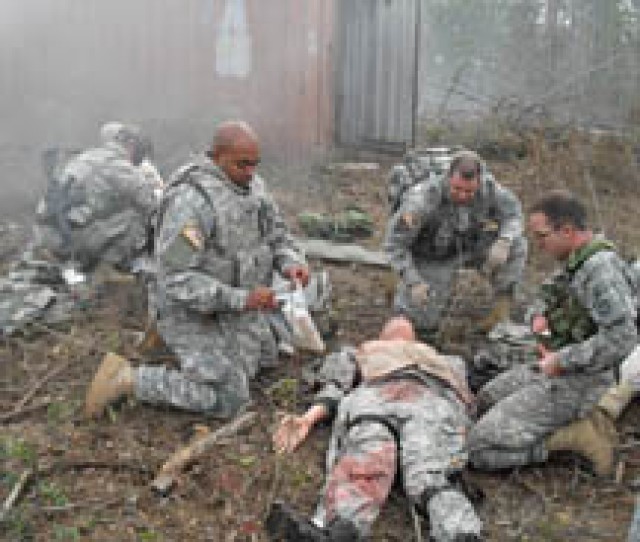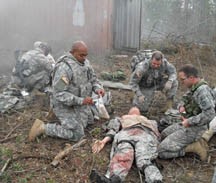FORT POLK, La. -- Most of the Soldiers going through combat advisor training at the 162nd Infantry Brigade are from the National Guard and Reserve components of the Army. However, The 4th Battalion, 353rd Infantry Regiment, 162nd Inf Bde, recently put an active-duty Soldier through the rigors of combat advisor training.
Sgt. 1st Class DeMarco Newton, an active-duty combat medic, completed the advanced trauma lane during his third week of training. Newton previously served as cadre for Bravo Company, Warrior Transition Unit, at Fort Sam Houston, Texas.
During the 60-day training model, combat advisors are required to go through military occupational specialty training. The training covers areas such as logistics, advance coalition effects, advance communications training, biometrics and military intelligence, and medical training (advance trauma).
"Overall, it was great training," Newton said. "As senior medics, we are put in supervisor positions that take us out of the application of our medical skills and this course provided the necessary refresher I needed. All the information, from combat packing your aid bag to care under fire and priority of treatment, constantly changes, so this training provided me with the most current information."
The specialized medical training is a part of the combat advisor's medical mentoring and advising program. The training engrosses the foreign security forces combat advisor medic in an environment that promotes learning while maintaining tactical realism. This training is structured for individuals working in medical military occupations and other medical technicians.
"This type of training is beneficial for all personnel, whether a new combat medic or even a senior medic with several years in the military," Newton said. "Another great objective of this training is the familiarization with the most current medical technology being used on the battlefield."
Newton has about five weeks of training remaining with 4th Bn and remains confident that he will be ready to employ all he has learned when he deploys to Afghanistan.
"The sharing of (tactics, techniques and procedures), experience from the (small group advisors), and overall curriculum makes this training imperative to a combat advisor and will definitely enhance the readiness of all medical personnel headed to Iraq or Afghanistan," he said.


Social Sharing